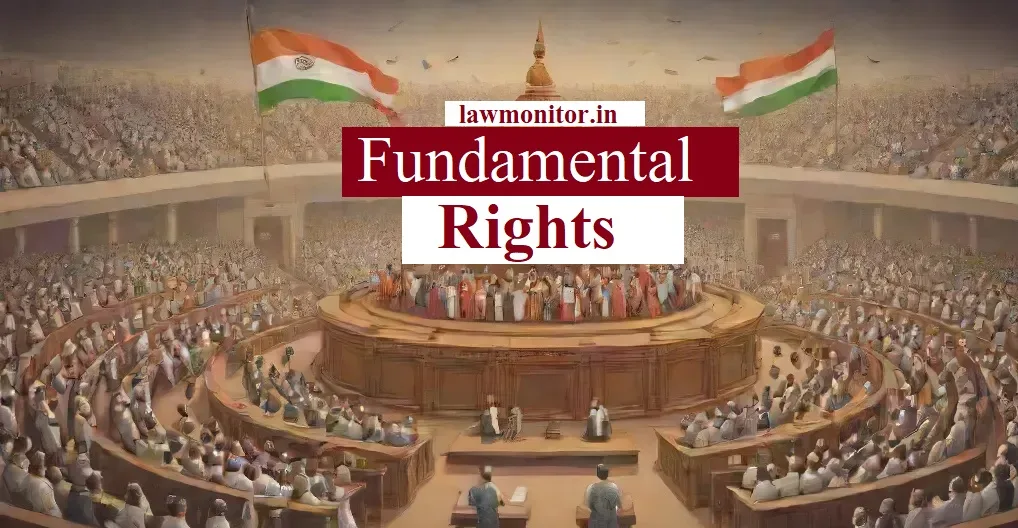The Fundamental Rights are mentioned in the Preamble of the Constitution which states that the Constitution ensures the rights which are necessary for the creation of a just and equitable society.
Fundamental Rights:
Fundamental Rights, enshrined in the Indian Constitution, are pivotal for safeguarding human dignity. These rights, detailed in various articles, encompass:
Right to Equality (Articles 14-18):
- Ensures equal status and personal liberty.
- Guards against discrimination based on caste, religion, sex, birth.
- Upholds equal pay and access to common places.
Right to Freedom (Articles 19-22):
- Guarantees personal liberty, freedom of speech, religion, association, and movement.
- Prohibits unlawful detention and ensures freedom of religious propagation.
Right against Exploitation (Articles 23-24):
- Protects against child labor and exploitation of workers.
Right to Religious Freedom (Articles 25-28):
- Provides the right to individual religious practices, adherence to religious ideals, and universal equality.
Culture and Educational Rights (Articles 29-30):
- Preserves cultural identity, safeguards minority communities, and ensures citizens’ right to education.
Right to Constitutional Remedies (Articles 32-35):
- Grants the right to constitutional remedies, ensuring justice, enforcement of rights, and accountability.
Read Also: Scope of Political Science : Traditional View (Part 1)
JUDICIARY NOTES CUET : Structure and Hierarchy of Courts

Other General Rights:
Apart from Fundamental Rights, Indian citizens also possess additional rights:
Right to Life, Health, and Occupation:
- Grants individuals the freedom to lead their lives, maintain health, and pursue chosen occupations.
Right to Justice:
- Provides the right to seek legal recourse, ensuring a fair hearing in accordance with just principles.
Property Rights:
- Affirms the right to use and own property according to personal choice.


